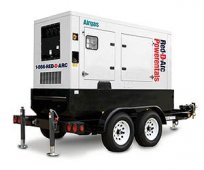l00semarble
New Member
- Joined
- Jan 1, 2022
- Messages
- 151
I hope they release a good complete report with photos and such. Interesting work done.
ABYC President's Message Common Sense | ||
|
| ||
| ABYC is built on a tradition of common sense and real world experiences. Early in my technical days, I was told ABYC designed the Standards so the backyard boatbuilder could achieve desired results. Testing and methodology were crafted in plain language for a “common sense” approach to a safe product. We did not set aside best engineering practices for simplicity; the technical committee is packed with engineers and data-crunchers overseeing the process of drafting and updating the Standards. This balance has helped ABYC create useable, reliable, and relevant documents that help to achieve an unmatched level of safety in our industry. This is why, when the US Coast Guard asked us to look into potential problems with Lithium Iron Phosphate (LiFePO 4) batteries on boats, we jumped at the chance. The ABYC Technical Department, with input from the industry, recreated a number of scenarios based on accident narratives that claimed LiFePO 4 batteries to be the cause of a fire. In our on-site test lab, our team subjected batteries to conditions ranging from “normal” operations to extreme use and abuse. We purchased units built for the marine environment with robust battery management systems. We also included recycled batteries available from mass retailers, with an “optional” battery management system and no clear instructions from the battery or cell manufacturer. We tried to replicate sketchy behavior which is the fear of insurance companies and regulators alike. Do you know what we found? We couldn’t start the fire (Sorry Billy Joel). We witnessed swollen cells, completely dead batteries, and multiple safety cutoffs (when not bypassed). We had a very hot summer here in MD. Even the high heat didn’t come close to a spontaneous combustion scenario. | ||
|

Our full report will be sent to the USCG in due course, and then ABYC will report on our findings. This being a mere President's letter please take it as what it is: My observations while watching our Technical Department do some great work. But, the research and testing may show us that we must take this discussion to the test labs for another round. Our common sense approach to testing has proven again to be the foundation for getting to the bottom of a scenario many of us (including myself) thought would reveal itself in short order. Stand by for formal reporting as we continue our work. |




